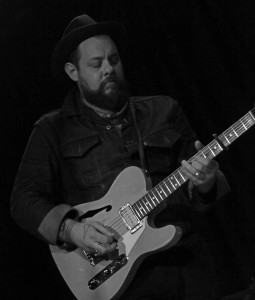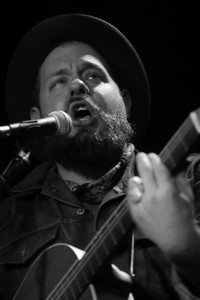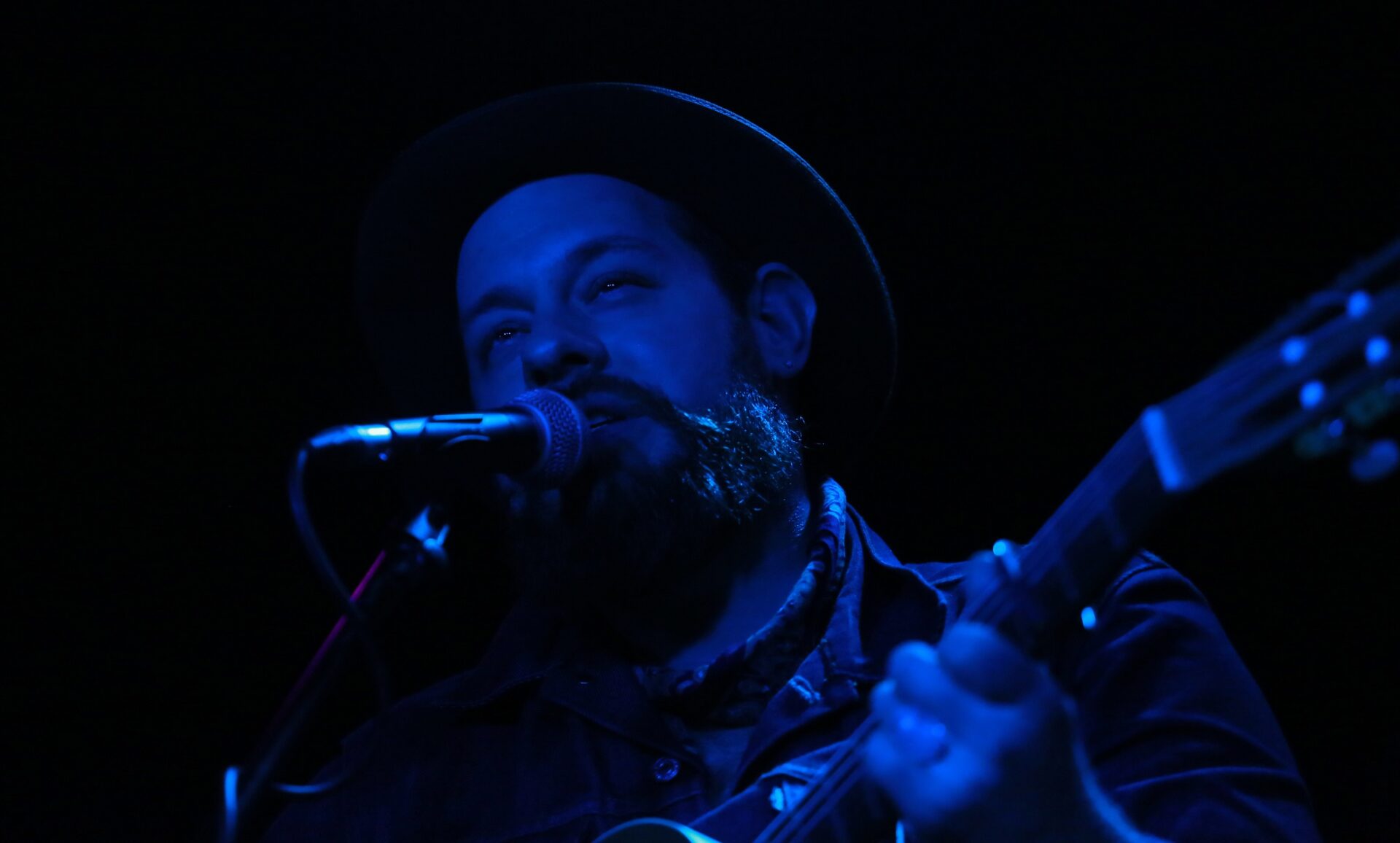Nathaniel Rateliff could have easily stepped onto the Belgrave Music Hall stage straight off of the back cover of Music from Big Pink. In his diamond crown pork pie hat, denim jacket and neckerchief he is ageless; his music, just like that of The Band, is timeless.
Backed by a three piece band of cello, keyboards and drums – it is only the third time that the quartet have played together, though such is their close communion you would never have known – Rateliff is in the UK and Ireland for a short tour to promote his recently released second album Falling Faster Than You Can Run. A native of Missouri but having subsequently relocated to Denver to undertake missionary work, Rateliff may still only be in his mid-thirties but such is the sense of longevity that he and his music conveys he seems like a man who has lived forever.
close communion you would never have known – Rateliff is in the UK and Ireland for a short tour to promote his recently released second album Falling Faster Than You Can Run. A native of Missouri but having subsequently relocated to Denver to undertake missionary work, Rateliff may still only be in his mid-thirties but such is the sense of longevity that he and his music conveys he seems like a man who has lived forever.
He opens with the title song from his new album, his desolate, laconic drawl accurately transporting you to the deserted melancholy of the place from where it had come. Rateliff’s voice seems to start at a point where Bill Callahan and Kurt Wagner converge. But by the time that he has reached ‘Closer’ – a song that somewhat inexplicably did not make the final cut for Falling Faster Than You Can Run – it has shed years and years of pain and regret and become the liberated roar of a much younger man.
Placed upon and around those particular staging posts are yet more examples of Rateliff’s subtle shifts in mood, pace and delivery as he and his band take us on an unhurried journey across the gently undulating terrain of his solo career to date. There is the swirling intimacy of ‘Pounds and Pounds’ – the B-side of the 7” version of ‘Shroud’ – and from his debut album In Memory of Loss  there is the stirring stomp of ‘Shroud’ itself, the lonesome whistle of ‘Boil and Fight’ and early single ‘You Should’ve Seen The Other Guy’, all confirming that Rateliff’s life is already one that has been lived to the emotional full.
there is the stirring stomp of ‘Shroud’ itself, the lonesome whistle of ‘Boil and Fight’ and early single ‘You Should’ve Seen The Other Guy’, all confirming that Rateliff’s life is already one that has been lived to the emotional full.
Taken from Falling Faster Than You Can Run, ‘Still Trying’ and ‘Three Fingers In’ pack, if anything, an even mightier, more powerful emotional punch, as Rateliff starts to stretch himself both musically and metaphysically. But even though much of his material has a residual sorrow at its core, through his natural charm and a deep spirituality that you sense may have been drawn from his previous missionary work, Nathaniel Rateliff creates an atmosphere of tremendous familiarity, peace and warmth through his words and music.




